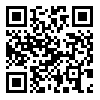مجله رویش روانشناسی از دادن گواهیهای کاغذی معذور است. لطفا تقاضا نکنید. همه گواهی ها در صفحه شخصی کاربران موجود است.
year 12, Issue 12 (winter 2024 2024)
Rooyesh 2024, 12(12): 1-10 |
Back to browse issues page
Ethics code: IR.UT.PSYEDU.REC.1400.049
Download citation:
BibTeX | RIS | EndNote | Medlars | ProCite | Reference Manager | RefWorks
Send citation to:



BibTeX | RIS | EndNote | Medlars | ProCite | Reference Manager | RefWorks
Send citation to:
Soltani F, Besharat M A, Farahani H. (2024). Predicting marital satisfaction based on ego strength, depression and anxiety symptoms. Rooyesh. 12(12), 1-10.
URL: http://frooyesh.ir/article-1-4758-en.html
URL: http://frooyesh.ir/article-1-4758-en.html
1- M.A. in Clinical Psychology, Faculty of Psychology and Educational Sciences, University of Tehran, Tehran, Iran.
2- Professor, Faculty of Psychology and Educational Sciences, University of Tehran, Tehran, Iran. ,besharat@ut.ac.ir
3- Assistant Professor, Faculty of Psychology and Educational Sciences, Tarbiat Modares University, Tehran, Iran.
2- Professor, Faculty of Psychology and Educational Sciences, University of Tehran, Tehran, Iran. ,
3- Assistant Professor, Faculty of Psychology and Educational Sciences, Tarbiat Modares University, Tehran, Iran.
Abstract: (1773 Views)
This study aimed to predict marital satisfaction and dissatisfaction based on ego strength, depression, and anxiety symptoms. The study employed a descriptive-correlational design, with 384 participants (306 female, 78 male) selected using available sampling in Tehran in 2022. Couples completed the Golombok-Rust Inventory of Marital State Questionnaire (GRIMS; Rust et al., 1986), ego strength scale (ESS; Besharat, 2007), and depression anxiety stress scale (DASS; Lovibond & Lovibond, 1995). Pearson correlation coefficient and simultaneous regression analysis were utilized to analyze the research data. The results indicated that increasing individual scores in ego strength (p<0.01, r=0.356) led to an increase in marital satisfaction. Conversely, increasing scores in depression symptoms (p<0.01, r=0.498) and anxiety symptoms (p<0.01, r=0.297) were associated with an increase in marital dissatisfaction. Furthermore, marital satisfaction could be predicted by ego strength (p<0.01) and depression symptoms (p<0.01), with these variables explaining 27 percent of the variance in marital satisfaction. In conclusion, the research suggests that ego strength and depression symptoms are significant predictors of marital satisfaction. A thorough examination of these variables in individuals can contribute significantly to enhancing marital satisfaction.
Type of Article: Research |
Subject:
Family Psychology
Received: 2023/08/1 | Accepted: 2023/08/25 | ePublished: 2024/03/10
Received: 2023/08/1 | Accepted: 2023/08/25 | ePublished: 2024/03/10
Send email to the article author
| Rights and permissions | |
 |
This work is licensed under a Creative Commons Attribution-NonCommercial 4.0 International License. |






